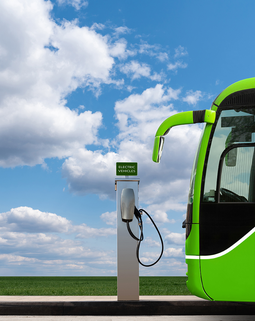In recent years, Kenya has been making significant strides towards a more sustainable and environmentally friendly transportation system, with a growing focus on the adoption of electric vehicles (EVs). This article explores Kenya's journey towards a greener future, examining the benefits of electric vehicles, the challenges and opportunities for adoption, and the initiatives driving the transition towards sustainable mobility in the country.
The Case For Electric Vehicles
Electric vehicles offer numerous benefits over traditional internal combustion engine vehicles, including reduced greenhouse gas emissions, lower operating costs, and enhanced energy efficiency. By replacing fossil fuel-powered vehicles with EVs, Kenya can significantly reduce its carbon footprint and air pollution levels, contributing to improved air quality and public health. Additionally, EVs are quieter, smoother, and require less maintenance than conventional vehicles, providing a more comfortable and enjoyable driving experience for consumers.
Government Support And Policy Framework
The Kenyan government has demonstrated a commitment to promoting the adoption of electric vehicles through various policy initiatives and incentives. These include tax breaks, import duty exemptions, and investment incentives for manufacturers and distributors of EVs and charging infrastructure. Additionally, the government has set ambitious targets for the adoption of EVs in the country, aiming to have at least 5% of all vehicles on the road be electric by 2025. These policy measures are designed to stimulate demand for EVs, drive investment in the electric vehicle ecosystem, and accelerate the transition towards sustainable transportation in Kenya.
Challenges And Opportunities
Despite the growing momentum behind electric vehicles in Kenya, several challenges remain that need to be addressed to facilitate widespread adoption. These include limited availability of charging infrastructure, high upfront costs of EVs, and concerns about range anxiety and battery life. However, these challenges also present opportunities for innovation, investment, and collaboration to overcome barriers to adoption and unlock the full potential of electric vehicles in Kenya. By leveraging technological advancements, fostering partnerships, and implementing supportive policies, Kenya can create a conducive environment for the widespread adoption of EVs and reap the benefits of sustainable transportation.
Infrastructure Development
The development of charging infrastructure is crucial to the successful adoption of electric vehicles in Kenya. Efforts are underway to expand the network of charging stations across the country, including in urban centers, highways, and public spaces. Additionally, innovative solutions such as fast-charging stations and mobile charging units are being explored to address range limitations and enhance the convenience of EV ownership.
Conclusion
Kenya's drive towards a greener future through the adoption of electric vehicles represents a significant step forward in the country's efforts to combat climate change, reduce air pollution, and promote sustainable development. With supportive government policies, infrastructure investments, and public awareness campaigns, Kenya is well-positioned to lead the transition towards sustainable mobility in Africa. By embracing electric vehicles and investing in a clean and efficient transportation system, Kenya can create a healthier, cleaner, and more prosperous future for its citizens and future generations.





